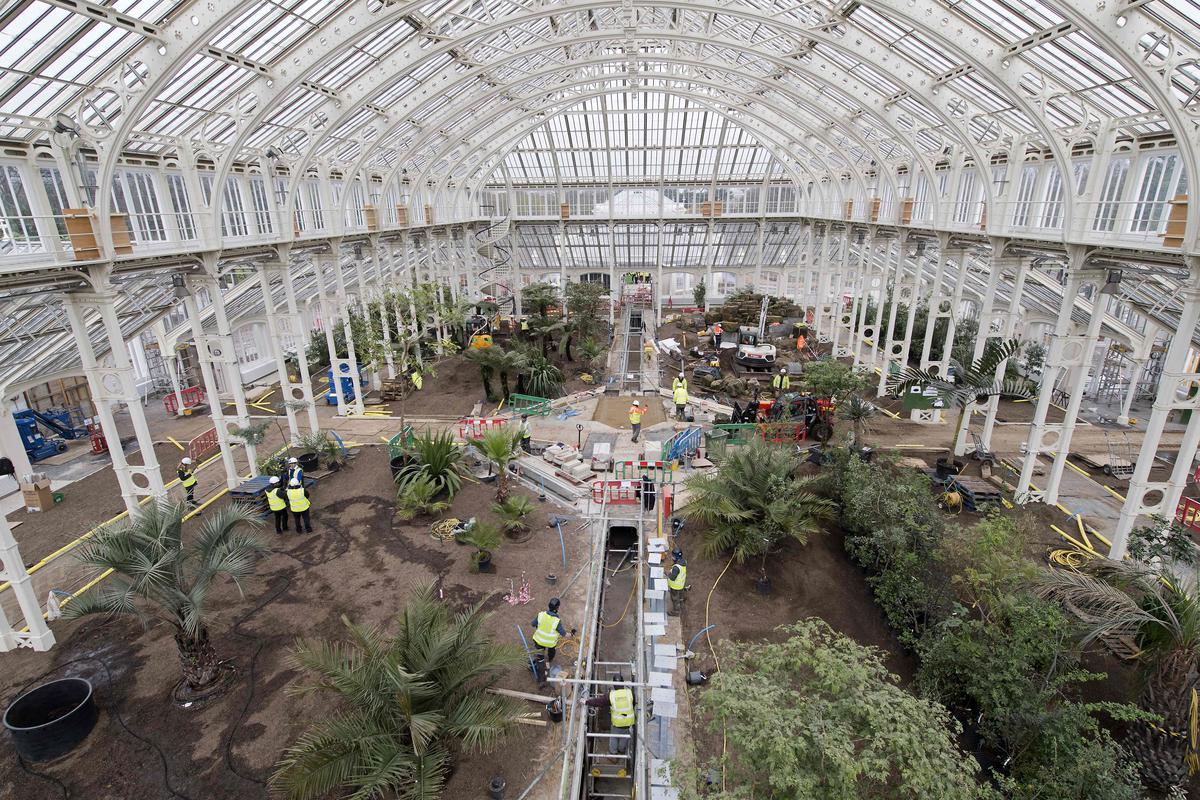On this Earth Day (April 22), we should celebrate the Tamil Nadu government’s recent decision to set up a large botanical garden (Chengalpattu Botanic Garden) in the state as an important and welcome news. Plants form the basis of civilization. Humanity has had a long association with gardens since humans learned to cultivate plants 11,000 years ago, marking the beginning of agriculture. The tradition of home gardens – planned space around homes for growing edible and medicinal plants – is mentioned in ancient texts and depicted in cave paintings, indicating the antiquity of gardening.
Gardens capture a portion of Earth’s biodiversity for our enjoyment; Modern academic gardens often contain hundreds and thousands of dried plant specimens for research.
Rulers, from ancient to modern civilizations, owned botanical gardens rich in native plants and plants collected from faraway places. These patrons of the botanic garden not only funded but also oversaw the botanical collection; A beautiful garden was an important measure of one’s prosperity and a benevolent administration.
The Palm House in Kew | Photo Credit: Getty Images
Between the 15th and 17th centuries, European exploration led to the establishment of many academic botanical gardens, where both plant curiosity and plant research were used to justify their establishment. The oldest of these, the Orto Botanico di Padova in Italy, was established in 1545, and the most famous, the Royal Botanic Gardens at Kew, near London, was formally consolidated in 1840. Today, these botanical gardens are major centers of research and education on plants as well as famous tourist destinations.
gardens in india
The oldest of the Indian academic gardens, the Acharya Jagadish Chandra (AJC) Bose Indian Botanic Garden, at Howrah, Kolkata, was established in 1787, though under a different name. The garden is spread over 109 hectares. The city is also the headquarters of the Botanical Survey of India, and thus the country’s major research center in botanical survey and documentation.
The exact number of botanical gardens in India is not known – published numbers range from 10 to 35. Globally, botanic gardens are important centers for plant discovery, discovery and research, as well as biodiversity outreach. Indian botanic gardens have often lacked this broad perspective. Only a handful of botanical gardens, such as the Botanical Garden of the Council of Scientific and Industrial Research (CSIR) – National Botanical Research Institute, Lucknow (Uttar Pradesh), Kerala State Council for Science, Technology and Environment (KSCSTE) – Jawaharlal Nehru Tropical Botanical Garden and Research Institute in Palode (Kerala), AJC Indian Botanical Garden, and more recently, KSCSTE-Malabar Botanical Garden and Institute for Plant Sciences, Kozhikode (Kerala) have plant exploration and education programs.
Limited knowledge, yet opportunity for change
India is among the countries with a high diversity of plants and animals), with an estimated 18,000 to 20,000 plant species. Plants are the structural foundation of our diverse ecological communities that feed us, provide us with nutrition and medicine, mitigate climate change, enrich our spirits, and secure us against an uncertain future. Yet, our knowledge of our vast botanical heritage is extremely limited.
Our scientific and educational institutions have, with few exceptions, neglected many aspects of plant biology: taxonomy, ecology, evolution, plant-animal and plant mycorrhizal interactions, population ecology and stress biology to name a few. Neglect is difficult to understand given the importance of plants in our daily lives, and our constant search for novel cures and restoration of nature.
The ₹300-crore Chengalpattu Botanical Garden (CBG), in Kadambur village of Chengalpattu district, is spread over 138 hectares, and will be India’s largest botanical garden. The CBG has the potential to become a leading center for discovery and discovery of our plant wealth, a hub for research, education, citizen science and outreach in plant biology, and a strong voice in conservation.
The Royal Botanic Gardens at Kew have been chosen as a key partner for technical expertise on which plants to use and how to maintain them. While Kew Gardens is unquestionably one of the largest and most sophisticated botanical gardens in the Northern Hemisphere, a number of institutions and individuals in India also have relevant and appropriate expertise in the design and development of gardens. Over the past two decades, botanic gardens in Singapore, Thailand and Indonesia have set new standards in their research and outreach programs while maintaining their recreational and ecotourism features. Collaborations with gardens that share many plant species can be extremely beneficial.

Inside the Temperate House at Kew, the largest surviving Victorian glasshouse in the world, during a restoration | Photo credit: File photo: AFP
as a standard
Given the complex engineering that goes behind the creation and maintenance of a successful garden, botanic gardens today represent a metric of national success, like a golden age of the sector, from the perspective of science, technology and outreach. As early as the Mauryan Emperor Ashoka, when a botanical garden was a display of prosperity, scientific temper and benevolent administration.
And it’s not just the botanic gardens. In this age of climate change and declining biodiversity, we need to nurture native plants and associated living organisms in every inch of our backyard and elsewhere, so that we can protect ourselves and future generations through the power of plants. Remind us of the need to heal the earth.
Kamal Bawa is the President Emeritus of the Bengaluru-based Ashoka Trust for Research in Ecology and the Environment (ATREE). Vinita Gowda is Associate Professor of Biological Sciences at the Indian Institute of Science Education and Research Bhopal (IISER Bhopal), Madhya Pradesh. Views expressed are personal